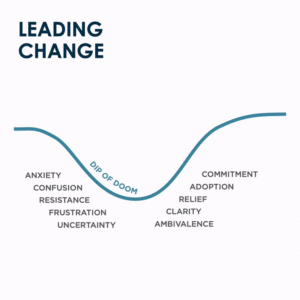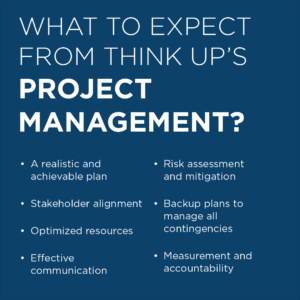Sleep 7+ hours each night. Exercise every day. Focus on the positive.
It’s advice we’ve likely all heard at some point in our lives. But what would it take for us to really adopt these habits?
The answer involves resiliency…and a little bit of science.
In the face of the COVID-19 pandemic, we had the opportunity to partner with one of our clients to create training around resiliency for their team members. These team members are on the front lines of this pandemic and have all been impacted. We designed an experience where team members could process all they had been through, both individually and as a team, and to learn how to increase their resilience in all areas of life.
Resilience is our ability to move forward despite adversity—and there are actions we can take every day to build our personal resilience.
Inspired by Dr. Michael Maddaus’ article “The Resilience Bank Account: Skills for Optimal Performance,” our training centered around the idea that personal resilience is like a bank account—and whether our resilience bank is full or teetering on empty impacts the way we respond in the face of stress.
By making regular deposits, you keep your resilience bank full, which allows you to better respond in the face of adversity. We fill our resilience banks by taking daily actions that feed our mind, body, and spirit.
Here are some key tips to fill your resilience bank, and the quick science behind why they work:
- Mind
- Focus on gratitude: Expressing gratitude releases chemicals in our brain that reduce worry and improve our sense of well-being. Make a habit of practicing gratitude by having a daily gratitude conversation with friends or family members.
- Maintain a positive outlook: Our brain is a creature of habit. When we constantly worry, we rewire our brain to process things negatively. Practice re-framing negative thoughts by finding something positive about the situation.
- Body
- Drink water: Your brain becomes dehydrated before your body even registers thirst. Even mild dehydration can cause fatigue, confusion, and hunger. Make it a habit to drink a glass of water before and after each meal, and carry a water bottle with you.
- Raise your heart rate: Even a quick, 10-minute walk gets oxygen pumping through your body, reducing anxiety and boosting your energy. Schedule “walking meetings” and talk while you walk–in person or via phone.
- Spirit
- Take a breath: Deep breathing gets extra oxygen to the brain and body, which calms the nervous system and helps you better manage stress. Practice deep breathing—inhale through your nose while counting to six, then fully exhale through your mouth as you count to six again, then repeat as necessary.
- Meditate: A few minutes of meditation can help reverse the effects of stress hormones on the body. There are a variety of guided meditation apps and videos available online.
These are not brand new ideas. So, what’s keeping us from doing them consistently? Sometimes, life happens. When we get stressed or busy, it’s difficult to remember to do things for ourselves. That’s why it’s important to form habits around these practices so they stick, and your resilience bank account is full when you face a challenge. Forming habits isn’t difficult, but it does require intentionality:
- Identify 1 or 2 things you want to create a habit around—don’t try to do everything all at once.
- Remind yourself—set an alarm on your phone daily or tape a note on your bathroom mirror to give yourself a little nudge.
- Choose an accountability partner—ask a friend or family member to help you keep up with your habits and encourage you along the way.
What “deposits” will you add to your routine to keep yourself resilient?



